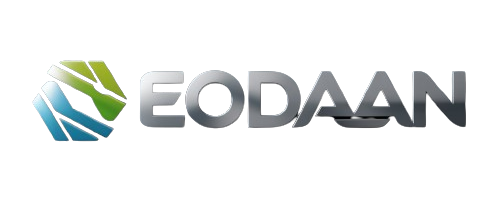Conversing With Games Developers Within The Community Of Education
Game development is a continuously evolving field that demands lifelong learning through collaboration and skills growth. While formal education provides foundational training, dedicated game design curriculum remains limited. As a result, both aspiring and seasoned professionals rely on vocational knowledge sharing to excel in this creative industry.
This is where game development communities become invaluable. By cultivating mentorship and cooperation across experience levels, these networks address challenges faced by all individuals. From novice students to veteran studio heads, everyone benefits by participating in discussion driven learning environments. Through organized events and grassroots initiatives, communities foster innovation by connecting diverse talents worldwide.
This article aims to highlight the important role such networks play in supporting career-long education within the game development domain. By analyzing prominent organizations and localized groups, it will explore how their strategic outreach programs and informal knowledge exchange directly benefit practitioners. Examples emphasize how the collaborative spirit inherent to these communities drives continued progress, empowering all to reach their full potential.
Role Of Game Development Communities
Game development communities play a pivotal role by bringing together individuals from all stages of their career. This fosters learning through collaboration and networking.
Aprovide A Platform For Professionals Of All Levels To Connect
Whether they are seasoned industry veterans or newcomers just getting started, communities act as a sounding board for everyone. Regular meetups, conferences and online forums help connect game devs who may otherwise remain isolated in their studios. This provides opportunities to build a support network essential for long-term learning and growth.
Foster Mentorship Opportunities Between Seniors and Newcomers
Within these networks, mentoring relationships naturally emerge. Experienced professionals willingly share their wealth of knowledge with newcomers through guided training programs. For example the IGDA works to match new graduates with mentors in their field of interest. This “teaching others” also reinforces mentors own skills.
Enable Collaboration On Work Through Networking
By connecting people with diverse skillsets, communities facilitate team building. Games developers meet potential collaborators with complimentary abilities, whether it’s programming support for an artist’s concept or business advice for an indie studio. Joining forces multiplies overall innovation.
Help Individuals Learn Skills From Each Other Through Discussions
Be it monthly meetups or global online forums the free flow of ideas is a community’s backbone. Professionals casually share technical problems and solutions, market trends or job openings over virtual and in person discussions. This fosters a collective intelligence that drives the industry forward.
Examples Of Industry Organizations
Leading associations cultivate skills on a global scale through strategic outreach, events and programs.
International Games Developers Association (IGDA)
As one of the largest communities, IGDA has over 25,000 members worldwide. It aims to advance careers and entrepreneurship through advocacy, professional development and resource sharing. IGDA plays a proactive role in closing experience gaps between educators and businesses. Representatives regularly consult universities to help design applicable curricula keeping industry needs in mind. For example, they have worked with institutions in North America and Europe to incorporate gameplay programming, dynamic character development and transmedia design lessons.
Roles In Encouraging Diversity and Supporting Development
IGDA special interest groups (SIGs) foster inclusive cultures. For example, the Women in Games SIG hosts global events and workshops spreading gender diversity awareness. Beginner and student-focused SIGs equip newcomers with portfolios, internship leads and career counseling. Grants also fund underrepresented minorities and women led innovative projects. This empowers marginalized voices instrumental to Games future.
Events and Programs to Facilitate Learning
Annually, the Advance global summit connects 10,000+ developers through seminars, panels and the expo hall. Experts dissect trends like Virtual Reality, blockchain and hyper casual markets. Workshops demo tools including Unity, Unreal and Twine tailored to all skill levels. Regional “Meetups” cover focused topics like player psychology, sustainable studios and AI storytelling monthly. Fellowships place grads in top firms. Published Salary Surveys help negotiate worth transparently. Such programming nurtures continued education at every stage.
Educational Value Of Local Meetups and Online Spaces
Beyond major associations, grassroots communities at local and virtual levels cultivate learning.
Opportunity For Idea Sharing
Loose weekly meetups organized by passionate volunteers bring together professionals separated by distance or studio affiliations. These low pressure environments encourage creatives to openly discuss works in progress seeking constructive feedback. This accelerates brainstorming compared to an isolated workplace.
Offering Support And Motivation
By meeting fellow creatives facing similar hurdles, individuals feel less alone in their grind. Commiseration over difficulties like publisher rejections or stressful crunch periods prove therapeutic. In turn, celebrating wins like greenlights and launch milestones reignites drive during slumps.
Resource For Finding Job Opportunities
Beyond networking, localized groups advertise open positions within their cities. Aspiring programmers flag their profiles to hungry indies. Working devs scout new hires among regular faces. Some communities even maintain job boards catering to local talent.
Promoting Innovation Through Interaction

Diverse methodologies collide in open-minded discussion. For instance, narrative designers proposing novel mechanics inspire engineers vice-versa. Interactive idea-bouncing filters into novel prototypes enriching the artform. Large scale forums host roundtables on ambitious experiments like government funded serious games projects.
Benefits For Individuals
Everyone, regardless of experience, stands to gain valuable skills and opportunities through community involvement.
Access to Expertise from Experienced Developers
Veteran games developers voluntarily share decades of institutional knowledge on communities specialized channels. Novices pick seasoned brains tackling technical conundrums or business issues. This supplements limited education, accelerating learning curves.
Guidance On Career Paths And Skill Building
Mentors advise protégés on in-demand proficiencies based on current industry needs. They recommend hands-on training paths like online certificates and conferences. Students gain insight into viable specializations like production management or game design.
Chance to Form Professional Relationships
Trusted contacts can lead to job references, contracting work or independent project collaboration. Even casual exchanges sometimes bloom into long term alliances uniting complementary talents. Partnerships formed while volunteering jointly elevate all members.
Support System to Overcome Challenges
Setbacks present learning opportunities shared for group problem-solving. Communities provide safe spaces venting frustrations from a canceled project or toxic workplace culture. United problem-owners brainstorm solutions preventing others from similar risks.
Importance Of Community Involvement
Thriving communities rely on participatory efforts across all experience levels.
Continued Progress Through Multi Level Engagement
Games rapidly evolve requiring lifelong dedication to betterment. All members shoulder responsibility staying relevant. Novices equitably contribute feedback while veterans impart accumulated knowledge. Fluid mentor mentee relationships ensure generational learning.
Mentorship Responsibilities For Seniors
Experienced individuals pay forward received guidance. They allocate time sharing expertise through structured programs helping novice portfolios and projects. Testimonials promoting diversity inspire underrepresented demographics. This grooms next leaders sustaining community pipeline.
Newcomers Tapping Available Resources
Early careers rely on optimized self-development. Aspiring creatives invest in community workshops and global events expanding technical and soft skills. They leverage discussion forums solving problems overlooked in curriculum. This autonomous dedication prepares for professional demands.
Community Role In Industry Growth
Thought leadership and advocacy strengthen public image attracting new talent. Volunteers organize accessible activities engaging broader audiences about rewarding career paths. Communities advocate on industry concerns like sustainable practices and inclusivity standards shaping positive progress.
FAQs
What is the Relationship Between Games and Education?
Relationship between games and education the Games can effectively be used as engaging learning tools in education by making lessons interactive.
What is Educational Game Development?
Educational game development the Designing and programming games to impart curriculum through mechanics, narratives and objectives rather than pure entertainment.
What Education do you need to be a Game Developer?
Education for a game developer the Recommended bachelor’s in fields like CS, engineering or design covering programming, software skills, graphics, audio and game theory.
What is the use of Game based Learning in Education?
Use of game based learning the Embedding academic content into game scenarios engages students through problem solving, collaboration and experiential learning compared to passive lessons.
Conclusion
Game dev communities cultivate learning through collaborative mentorship. They bridge educational gaps and support careers via platforms for skill building. Cross pollination of ideas ensures continual industry progress empowered by cooperative community efforts. As the industry expands, these networks will remain vital to championing education.





